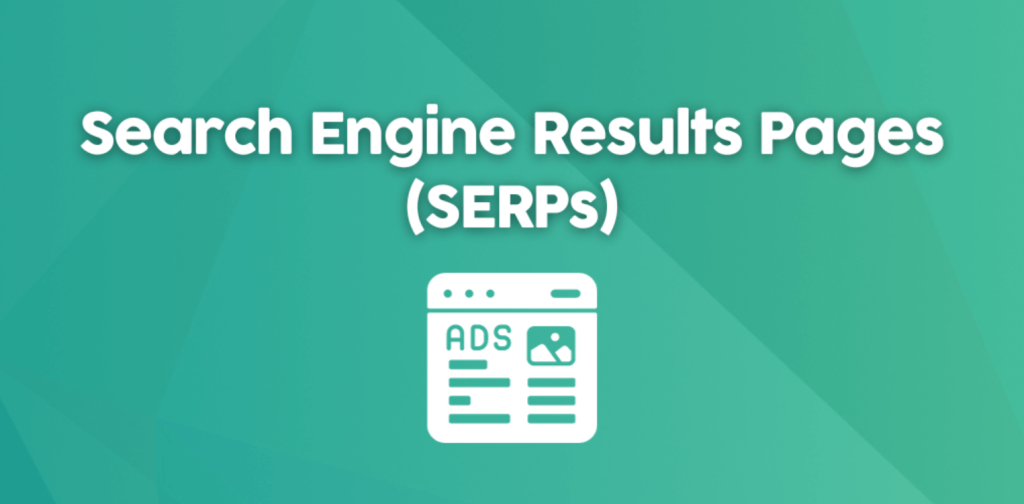An important component of digital marketing is a Search Engine Results Page (SERP). This phrase describes the page that shows up following the entry of a search query into a search engine. Complicated algorithms decide which pages should be displayed to the user based on relevance and authority, and these decisions define what appears in the Search engine results. These pages are essential for companies looking to increase their online presence since they serve as the entry point for website traffic.
Elements:
Paid results and organic results are the two groups into which a typical result page of a search engine can be separated. Each has a distinct purpose in increasing website visitors.
- Paid Results: Ads or paid results are usually displayed as the top few items on a search engine results page. These are denoted with the designation “Ad”. Pay-per-click (PPC) is the word for the bidding procedure used by businesses to choose where their web pages are shown. These spots are paid for. Instant prominence is the main benefit of sponsored results, but over time, they may become expensive. Paid advertisements frequently point to a specific landing page intended to turn viewers into buyers.
- Organic Results: Search engine optimization (SEO) activities are what yield organic results, on the other hand. These are the unpaid listings that search engines believe most relevant to the search query. Achieving a high ranking in organic search results is a long-term plan that calls for regular work on backlink building, on-page optimization, and the production of high-quality content. Because organic traffic is earned rather than purchased, users are more likely to trust it.
What Makes a Modern Search Result’s Page?
Simple lists of links have given way to more dynamic and educational sections in search engine results pages. Many features that improve user experience and speed up access to pertinent information are present in the current search engine result.
- Featured Snippets: A featured snippet is a box that summarizes a response to the search query and shows up at the top of the organic results. It is frequently taken straight from a webpage and includes text, pictures, or videos. Because they attract a lot of attention, featured snippets—also known as “Position Zero” because they appear before the first organic result—are extremely lucrative.
- Knowledge Panels: Found on the right side of the search engine result page, knowledge panels present data from reliable sources such as Google’s Knowledge Graph and Wikipedia. These panels offer brief information and specifics about a certain subject, individual, or group. Knowledge panels are frequently seen in searches pertaining to well-known people, organizations, or locations.
Significance:
To be visible on a search engine, a website must rank well in result pages. According to research, the majority of people only look through the first page of search results. Consequently, it is doubtful that a website ranked on the second or third page will receive a lot of visitors. The majority of clicks are directed towards the first three organic results, with the first result alone accounting for between 30 and 40 percent of all clicks. Because of this, companies must spend money on SEO tactics in order to claim these important positions.
Elements Affecting Positions:
A website’s ranking on a result page is determined by a number of criteria, all of which are subject to frequent changes as a result of algorithm changes. Among the most crucial components are:
- Relevance of Content: Content that is extremely pertinent to the query is given priority by search engines. Websites with accurate, thorough, and interesting content are more likely to be ranked higher.
- Backlinks: Links originating from other websites serve as a website’s vote of confidence. High-quality backlinks from reputable websites are interpreted by search engines as evidence of the content’s value and reliability.
- User Experience: A good user experience is influenced by factors including mobile friendliness, ease of navigation, and page load speed. Better rankings are awarded to websites that excel in these categories.
- On-page Optimization: Optimizing meta tags, headlines, and URLs with pertinent keywords is known as “on-page optimization.” The easier it is for search engines to crawl and index content on a well-structured webpage, the higher the content’s potential ranking.
In summary, In the ecology of digital marketing, SERPs are essential. Businesses aiming to improve their internet presence must comprehend the characteristics, organization, and ranking elements of these pages. Businesses may increase their visibility and get vital traffic to their websites by concentrating on both sponsored and organic techniques and staying up to date with search engine features.

